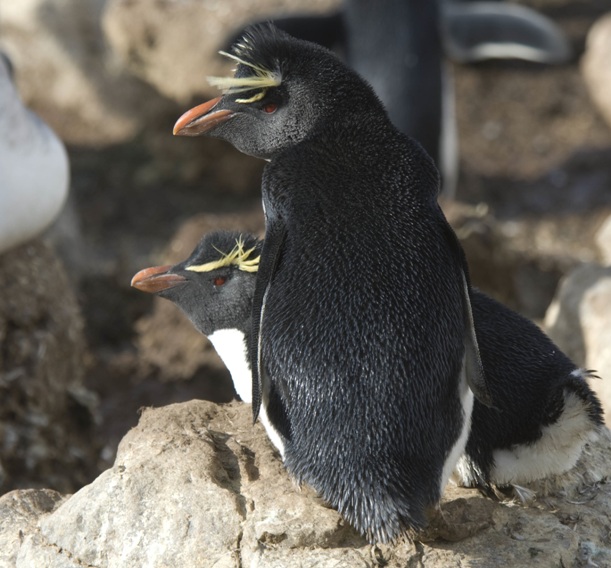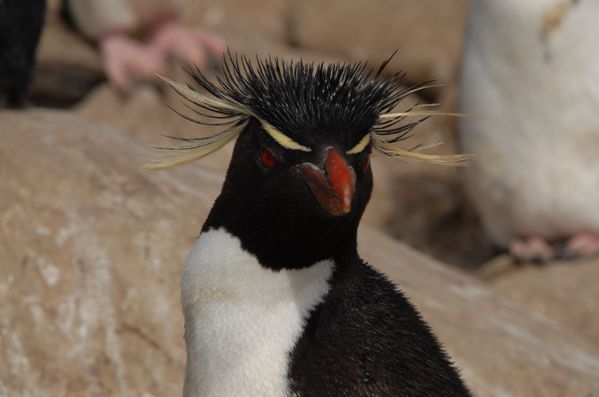Southern rockhopper penguins (Eudyptes chrysocome) are easily distinguished by the spiked plumes on their head, their neon-yellow eyebrows, and red eyes. But these wild-looking penguins are also endangered: the IUCN Red List classifies them as Vulnerable to extinction due to pollution and drowning by fishing nets.
But, the penguins are now receiving some help: Argentina has announced the establishment of a new protected area in the Province of Santa Cruz, along its 3,000 mile coastline. The area, named Parque Marino Isla Pingüino (‘Penguin Island Marine Park’), covers 650 square miles (1,700 square kilometers) of coastal miles and nearly 60 miles (100 kilometers) of the Atlantic shore.
“This decision by Argentine officials represents a significant commitment by the government to protect an extraordinary marine ecosystem,” said Director of the Wildlife Conservation Society’s (WCS) Latin American Programs Avecita Chicchon. “The creation of this park will help to ensure a future for the threatened species in this region and will protect the area’s unique natural heritage.” The WCS was closely involved in negotiations to bring about the park.
The rockhopper penguin, named ‘rockhoppers’ because instead of sliding on their belly or waddling they hop from place to place, has declined by about one-third in the past three decades.

A pair of southern rockhopper penguins. Photo by: Graham Harris/Wildlife Conservation Society.

Close-up of southern rockhopper penguins. Photo by: Graham Harris/Wildlife Conservation Society.
Related articles
Falklands Dispute: Argentine Sovereignty Won’t Solve the Problem

(03/15/2010) With Britain now moving to explore for oil and gas in the Falkland Islands, Argentina has cried foul. Buenos Aires claims that the Falklands, or the Malvinas as Argentines refer to the islands, represent a “colonial enclave” in the south Atlantic. The islands have been a British possession since 1833, and the local inhabitants consider themselves thoroughly British. Yet, Argentina claims the Malvinas as the country inherited them from the Spanish crown in the early 1800s. In 1982 Argentina seized the islands but was later expelled by a British naval force. The war was short but bloody, costing 650 Argentine and 250 British lives.
Global warming may doom emperor penguins to extinction
(01/27/2009) Disappearing sea ice around Antarctica may put emperor penguins at risk of extinction within the next century, warn scientists writing in this week’s Proceedings of the National Academy of Sciences.
Global warming puts penguins at risk of extinction
(02/11/2008) Climate change could put the long-term survival of sub-Antarctic King Penguins at risk by reducing the availability of prey, reports a new study published in Proceedings of the National Academy of Sciences.







